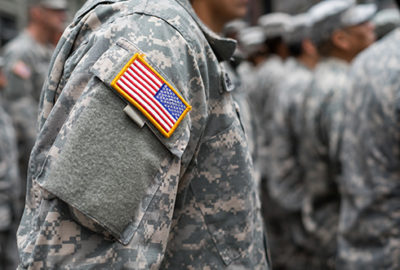Getting Help When Your VA Claim is Denied

If the VA has denied your claim(s), you don’t necessarily have to take ‘no’ for an answer. You also do not have to hire an attorney to handle an appeal; however, a free claim review by Gerling Law might be in order. The appeals process can be overwhelming. This is why it is important to discuss your claims with a VA accredited attorney before filing an appeal.
If you are already receiving compensation for conditions that have worsened, you may be entitled to an increase in your already service connected conditions. Appealing conditions with low ratings can make a big difference in the amount of benefits you receive.
I want to thank my attorney, Jesse Poag, and my paralegal. They were awesome at answering any questions I had while assisting me in getting qualified for disability benefits. Thank you, Jesse- you’re awesome!
–Susan G.
Other than simply denying valid claims, many things can go wrong while filing claims with the VA. The VA often makes mistakes. The VA may incorrectly list effective dates and a veteran might have not received all of their back pay.
Our experienced attorneys will review your claim to determine if you are eligible for any past-due benefits that may have been previously owed to you by the VA.

The time limit to file an appeal after a Rating Decision is issued is one year. If you do not file an appeal within the one year period, you must start over and file a new claim.
You may not need a VA disability attorney if you are appealing something simple; however, if the claim is complicated you should seek professional help. The appeals process is complicated and time-consuming. Several aspects are time-sensitive and have different deadlines to keep up with. Legal professionals have experience writing briefs, doing research and submitting evidence.
If you are denied or get a low rating, ask a VA disability attorney at Gerling Law about it. Let us take a look and review the situation to decide if an appeal is right for you.
Veteran Appeals Modernization Act (AMA)
The Veterans Appeals Modernization Act was implemented to improve the appeals process for Veterans. This process allows veterans to have control over their claims. Any veteran who receives a decision after February of 2019 is automatically in the AMA process. There are new ways a veteran may choose to handle their disagreement. There are three different lanes a veteran may choose. An explanation of AMA processes can be found at https://www.benefits.va.gov/benefits/appeals.asp
Higher Level Review Lane
When a veteran elects the higher level review lane, the claim will be reviewed by a more experienced adjudicator. A veteran may not submit any new evidence when a higher level review is elected and their claim(s) will only be reviewed with all the information that was considered at the time of the initial Rating Decision was made.
Supplemental Claim Lane
When a veteran elects the supplemental claim lane, new evidence must be submitted to support their claim. New evidence includes any evidence a veteran has not previously submitted to the VA. This appeal lane is a good choice if you know information may have been missing from the original claim filed, or if you have any new and relevant evidence to submit. The VA will do their best to assist a veteran in gathering any new evidence.
Appeal to the Board Lane
This appeal lane option sends a veterans disagreement directly to the Board of Veterans Appeals to be reviewed by a Veterans Law Judge (VLJ). There are three options to choose from when you send your disagreement to the Board of Veterans Appeals.
- Direct Review – Direct review is similar to higher level review lane. No new evidence can be submitted. Your disagreement will be added to the docket. The VA states these decisions can take approximately 1 year to be decided.
- Evidence Submission – Evidence submission is similar to the supplemental claim lane. If a veteran elects this option, the disagreement will be added to the docket. The veteran has 90 days to submit any new evidence. The VA states these decisions can take more than 1 year to be decided.
- Hearing lane – A veteran has the option to testify before a Veterans Law Judge (VLJ). A veteran is scheduled for a Board hearing and may submit evidence at the hearing or within 90 days prior to their scheduled hearing. If a hearing is scheduled, it could be 2 or more years before their disagreement is decided.

If you’re facing a claim denial, reach out to Gerling Law as soon as you can. The sooner we can get started on your appeal, the better. Reach out and review your claim for free.
- How Do I Deal with Insurance Companies After a Truck Accident
- Understanding Trucking Regulations in Indiana
- Common Challenges in Motorcycle Accident Cases and How to Overcome Them
- The Importance of Gathering Evidence in Motorcycle Accident Claims
- The Statute of Limitations in Motorcycle Accident Cases in Indiana